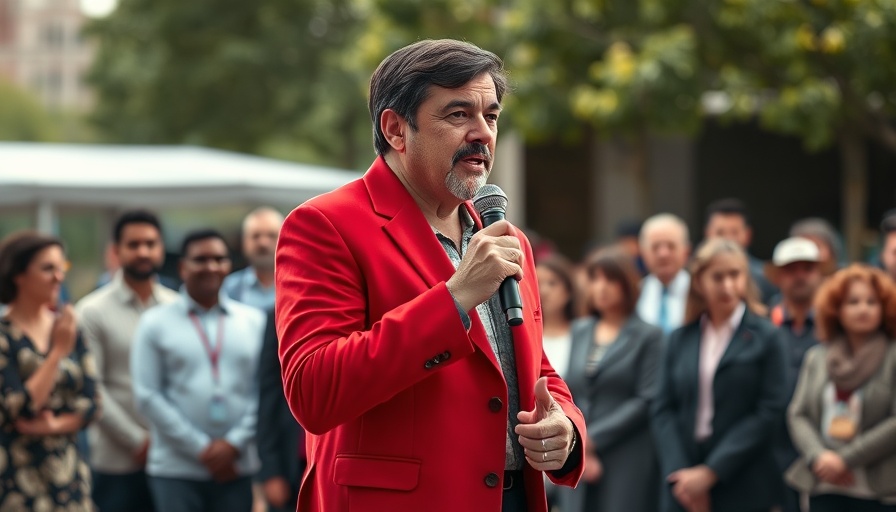
Unpacking the Implications of the Israeli Airstrike on Evin Prison
On June 23, 2025, an Israeli airstrike targeted Evin Prison in Tehran, an infamous center for political detainees and activists. Human Rights Watch (HRW) has condemned this attack as an "apparent war crime," raising significant concerns about the legality and morality of such military actions during times of conflict. The international community is now grappling with what this airstrike means for human rights standards and international law.
The Context: Israeli-Iranian Tensions
The airstrike occurred amid escalating tensions between Israel and Iran, triggered by earlier assaults, including Israeli strikes on Iranian nuclear facilities. This conflict has claimed over 1,100 lives in Iran and at least 28 in Israel, showcasing the severe impact of military confrontations on civilian populations. HRW argues that the airstrike was indiscriminate, lacking clear military objectives as it hit areas populated by civilians, including inmates and visitors.
The Aftermath: Escalating Human Rights Concerns
In the strike's aftermath, Iranian authorities relocated prisoners to other facilities, claiming peaceful transfers. However, eyewitness accounts and reports from HRW tell a far different story. Reports indicate that some political prisoners faced brutal treatment during their transfers, suggesting that human rights violations continue under the guise of security measures.
The Heavy Toll on Political Prisoners
The attack not only ended lives but also brought existing human rights abuses into sharper focus. Political dissidents like the Swedish-Iranian doctor Ahmadreza Djalali remain missing, heightening fears regarding their safety and future. This situation highlights the dual crises prisoners face: the imminent threat of military assault and ongoing maltreatment by the state.
Broader Implications: The Need for Accountability
The designation of the airstrike as a war crime raises critical questions of accountability for actions taken during armed conflict. As the global community witnesses increased military engagements, the need for a robust response from international governing bodies becomes ever pressing. HRW's calling out of both Israeli military actions and Iranian treatment of prisoners signifies a call for a unified stance on the protection of human rights—even amid war.
Taking Action for Human Rights
These events bridge the divide between international politics and human rights, creating an urgent call to action for organizations, diplomats, and everyday citizens. Advocating for the rights of political prisoners and holding states accountable is paramount. Initiatives can include petitioning governments and supporting international watchdog organizations that strive to ensure humane treatment for political detainees worldwide.
The heartbreaking events unfolding at Evin Prison remind us of our shared humanity and the importance of upholding rights—especially for the most vulnerable amid conflict.
 Add Row
Add Row  Add
Add 




Write A Comment